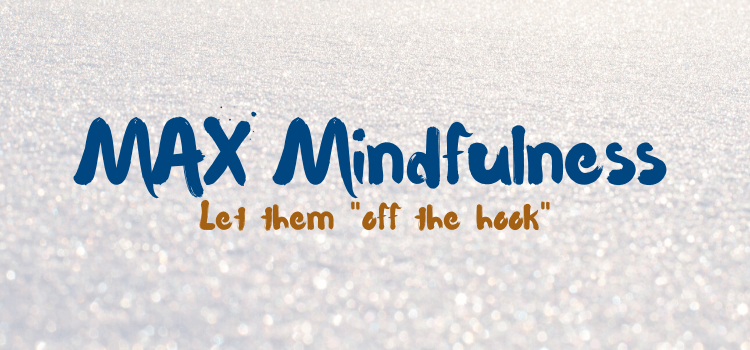by Dave Wine, President & CEO
There is one practice that, if done regularly, can change your life! It doesn’t take much time, it isn’t complicated (although it is not easy), and it is something you can easily fit into your schedule throughout each and every day. It is what I call “letting them off the hook”. The most debilitating baggage we carry in our lives is our resentments or grievances. Not just with others but with nearly everything we have and do in life. We are always judging things, events and others. We are measuring how much “happiness” they are giving us, how they are living their life compared to ours, who is doing things ‘right’ and who isn’t, whether our things are giving us what we intended, etc. etc. etc. As I’ve shared many times before it takes that ‘pregnant pause’ for us to stop long enough to recognize what our minds have been doing to sabotage our joy and peace. Since our minds naturally go to ‘judging and measuring’ it takes a practice, a mindful approach to break that habit.
So here’s the ‘easy yet very hard’ practice I’d invite you to try. You might even want to use something to remind you like a recurring daily message, email, alarm, or similar. Stop at frequent, yet brief intervals throughout the day. Focus on what you are feeling at the moment. If you are not at peace and feeling agitated or frustrated or down, you can bet that something is occurring in your mind that is causing you to feel resentment or a grievance. It could be your work, a phone call just made, an agent who just doesn’t get it, something that happened at home, someone wearing something your mind doesn’t like, a health issue, something someone said, and any number of other things our mind attaches to throughout the day. One of the ways we never deal with things is letting them sit at the edge of our minds, creating negative emotions, but never focusing on them. Focusing on them is actually helpful – bringing them to our consciousness so that we can release them. If we ignore and pretend they aren’t there, they will fester.
The very simple practice is to feel those, recognize those and then just say, “Dave, (if I’m your issue), I release you and let you off the hook.” Or “I feel my fears about my health but I am letting that off the hook.” “That person cut me off in traffic, but I am letting them off the hook.” “That person is wearing the ugliest sweater I’ve seen but I’m letting them off the hook.” “This task stinks but I’m letting it off the hook.” Or, for me this past year, “I hate the storms but I’m letting them off the hook.”
Why does this practice work? It allows you to feel and recognize an issue. That is important. But then it allows the next important step – to do an act of forgiveness and in this we are actually forgiving ourselves more than ‘the other’. It allows us to recognize that we alone, each of us, are responsible for our thoughts and feelings. No one else or thing is causing us to feel what we are feeling, regardless of how much we think otherwise. We are each responsible for our own thoughts. So bringing up our thoughts and then doing an act of release, forgiveness, ‘letting them off the hook’ is one of the most helpful practices we can do. It seems simple, almost too easy in its formula, yet I have found it works – it creates that needed space to own and lessen the impact of the many judgments and resentments we carry in our minds every single day. Of course, the hard part of the easy is to really ‘mean it’ – to be willing to ‘let off the hook’. But even if you don’t feel like it, try and pause, recognize the issue, and just say it to yourself, “I let you off the hook”. I think you might be surprised at how it lessens the edge of that thought.
David Wine
David is the President and CEO of the MAX enterprise, having served in that capacity since its formation in 2001. He has forty plus years of leadership experience in the business and faith-based worlds, being an ordained minister, having been elected to the highest position in his denomination, and receiving numerous awards and recognition for his leadership in the insurance industry. He currently serves on numerous boards in the church and insurance sectors. His hobbies include hiking, biking, skiing and snowshoeing as well as being an avid reader. David and his wife, Sharon, have three daughters, a son, and six grandchildren.

